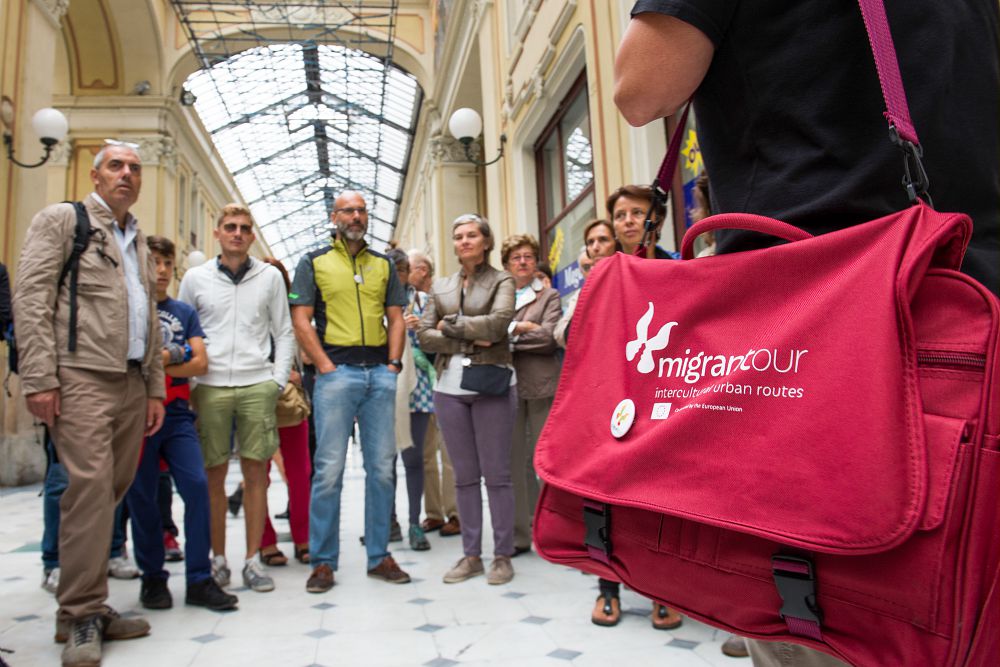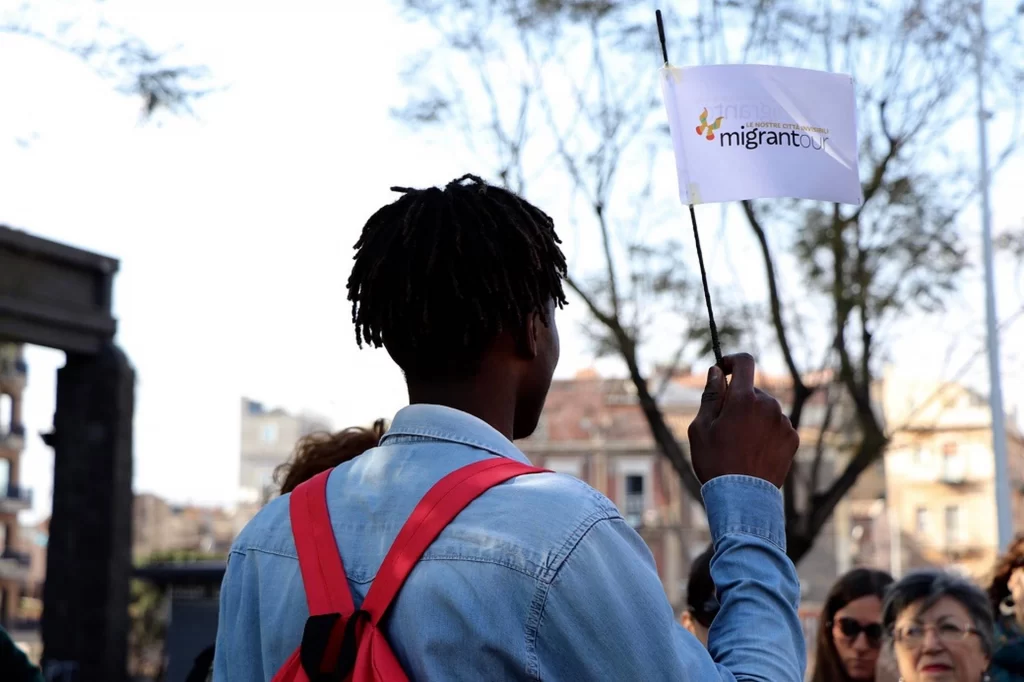#9 The first steps of Migrantour took place in Turin, a city in the north-west of Italy with a long history of migration and industrial production. Then, through different stages, Migrantour grew into a network that involves several European cities in Italy, Portugal, Slovenia, France and Belgium. All of them are experiencing challenges in the sociocultural integration of migrants and most of the time, this led to neighbourhood segregation. Therefore, specific ethnic groups became marginalized together with their values and traditions. Even the sociocultural heritage of these groups of “new locals” is often neglected by a mainstream view that, in the best case, is associated to a stigma and considers these areas dangerous, unattractive, and populated by the disadvantaged. Consequently, the culture of these groups of residents is rarely valued by socioeconomic initiatives that bring real value to their living conditions and to their sociocultural recognition in society. The idea that tourism could play a positive role in changing this situation is not new and examples of “ethnic neighbourhoods” becoming tourist destinations are reported by literature (Aytar & Rath, 2012). Nevertheless, these experiences have sometimes been controversial as, besides concrete opportunities for migrants, they were also promoting forms of “folklorization” of cultural differences, reducing migration to an object of leisure consumption. A spontaneous initial encounter between an anthropological perspective and the entrepreneurial vision of a tour operator in responsible tourism (Viaggi Solidali) sparked the interest in experimenting with a new type of responsible tourism. The idea focused on discovering the culture of specific areas of the city while increasing the knowledge of how migrations and several generations of migrants contributed to the evolution of the city and specifically to the transformations of certain neighbourhoods. Along this path, Migrantour offers “intercultural walks” facilitated by a new figure, the “intercultural companion”, who is a local resident with a migrant background. Migrantour routes let participants explore themes and narratives representing the story of the migrations that have transformed the area over time and the contribution that different generations made in terms of enriching the tangible and intangible heritage of the city. After the first experience in Turin, the experiment was successfully replicated in a few other Italian cities. Then, the expansion continued thanks to the support received from other international projects, local associations and tour operators. The impact of the intervention is economic because it creates a number of part-time jobs and the consequent increase in the monthly income of intercultural companions. The training received also contributes to their professionalization, which might help in getting other jobs. It also has some impacts on the neighbourhoods, specifically on the small businesses that are involved in the itinerary of an intercultural walk. Finally, it is “dramatically” increasing the number of tourists visiting certain zones. More vigorous are the social impacts. Intercultural companions reported that through Migrantour they were able to achieve results in terms of professional growth, social integration, self-esteem and self-realization of their capabilities. Their professional path within Migrantour makes them active citizens, more participative and more involved in society. Migrantour fights stigmas. It promotes relational dynamics between migrants, visitors and native residents. It allows territories to narrate and express themselves. Having a bottom-up approach, both in terms of content and organisation, helps to ensure flexibility, adaptability and replicability of the intervention in different contexts and the successful creation of a network.
Bibliography: Volkan Aytar & Jan Rath, Selling Ethnic Neighborhoods: The Rise of Neighborhoods as Places of Leisure and Consumption, eds, Routledge, New York, 2012.




